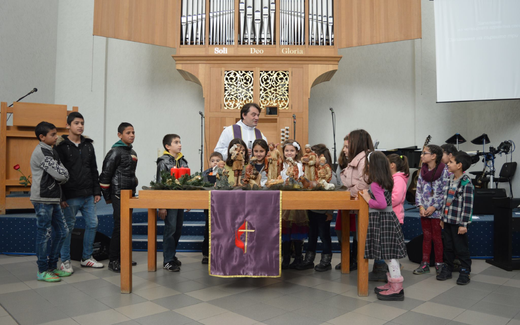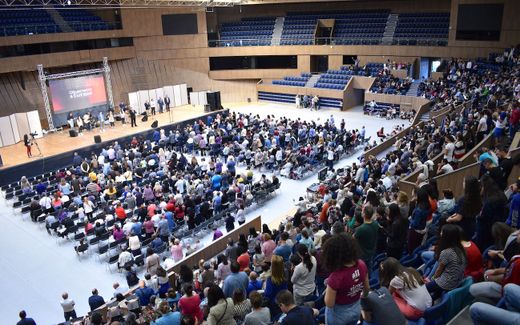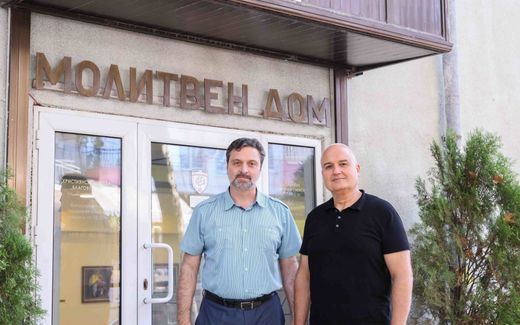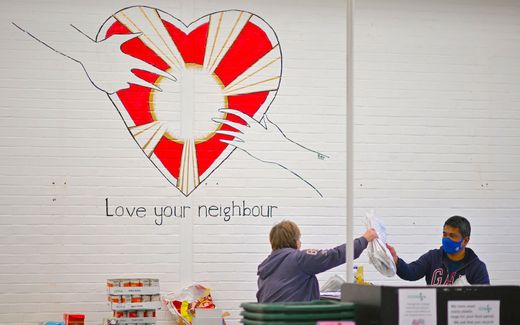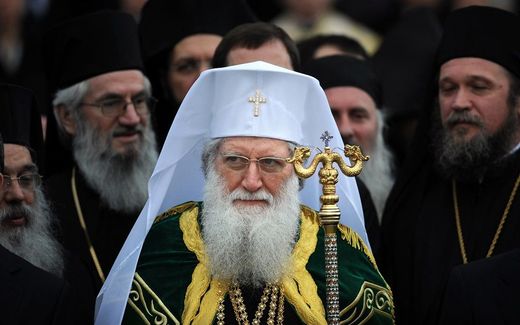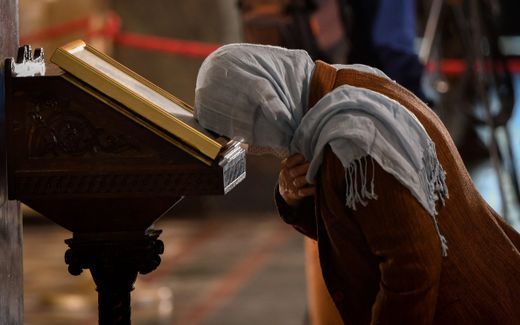New calendar in Bulgaria sparked more than just a church split
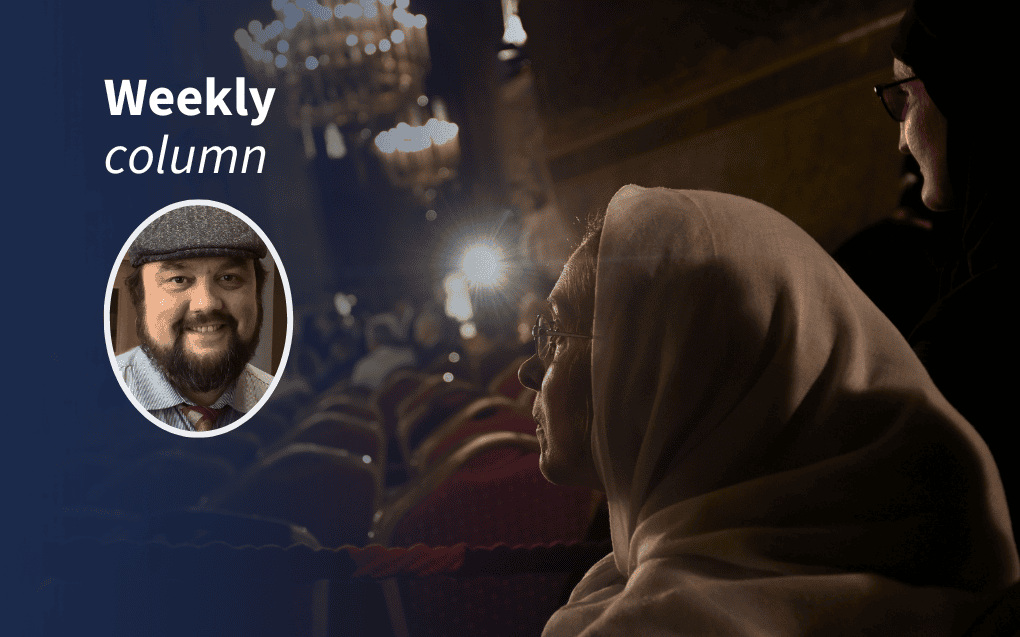
Photo Canva, EPA, Vassil Donev
Christian Life
“Happy New Year!” You probably said and heard that many times about two weeks ago. But did you know that not everybody celebrated the start of 2025 right on January 1?
There are some who don’t wish each other the best for the new year until January 14. They call themselves “Old Calendar Orthodox” Christians. This small group of believers continues to follow the traditional Julian calendar, rejecting the contemporary Gregorian calendar adopted by most of the world.
This group’s journey to legal recognition has been long and challenging. However, on December 16, 2024, the Bulgarian Supreme Court of Cassation granted them official registration under the name “Old Calendar Orthodox Church of Bulgaria” (OCOCB). This decision, while marking a victory for the Old Calendarists, sparked a wave of controversy within Bulgaria’s Orthodox and political spheres.
Who Are the Old Calendarists? The split-off community emerged in 1968 when the BOC (Bulgarian Orthodox Church) adopted the Revised Julian Calendar to align its liturgical calendar with Western timekeeping. This change, part of broader ecumenical reforms, was deeply controversial. The dissenters, later known as Old Calendarists, viewed the reform as a betrayal of Orthodox tradition and an unwarranted compromise with modernism.
The Old Calendarists upheld the Julian calendar as an expression of liturgical purity and theological continuity. Their movement, which is in possession of 18 church buildings and two monasteries, persisted despite significant challenges. They continued to practice their faith, maintaining a strict adherence to pre-reform Orthodox traditions.
The group’s recent legal recognition by the Supreme Court reflects the culmination of decades of efforts to assert their institutional legitimacy and secure a place within Bulgaria’s religious landscape.
Calendar Reform
To understand the roots of the Old Calendar controversy, it is essential to look back to Bulgaria’s calendar reform in 1916. That was when the country officially switched from the Julian to the Gregorian calendar. This reform was part of an effort to align Bulgaria with Western timekeeping standards.
The change was spearheaded by Prime Minister Vasil Radoslavov, who introduced the legislation to Parliament on February 26, 1916. The transition was swift, with the Julian calendar ending on March 31, 1916, and April 1, becoming April 14 under the Gregorian system. Discussions about the reform began earlier that year, led by journalist Stoyan Vatralski. Writing in the Protestant newspaper Zornitsa, Vatralski argued for the necessity of the Gregorian calendar in a modernising world.
Despite the state’s adoption of the Gregorian calendar in 1916, the Bulgarian Orthodox Church continued to follow the Julian calendar for its liturgical practices until 1968, when it transitioned its observances to the Gregorian Calendar. Meanwhile, the Russian, Serbian, and other patriarchates continued to adhere to the Julian calendar, while the Ecumenical Patriarchate, Greece, Romania, and Bulgaria followed the Gregorian calendar. Among the Orthodox Churches, there is tolerance regarding calendar differences, with no breach of communion over the issue.
It was this transition, however, that prompted resistance from some Orthodox believers, leading to the formation of the Old Calendar Orthodox Church of Bulgaria.
Legal recognition
The Supreme Court’s recognition of the OCOCB under the name “Orthodox” has sparked strong opposition from the Bulgarian Orthodox Church (BOC). The BOC, constitutionally recognised as Bulgaria’s traditional religion, sees the decision as a threat to its spiritual and institutional authority.
Patriarch Daniel, elected as leader of the BOC on June 30, 2024, described the Old Calendarists’ registration as “uncanonical” and warned that it could cause confusion among believers. “The Orthodox Church can only be one,” stated the Holy Synod in its official response.
Political leaders, including Prime Minister Dimitar Glavchev and President Rumen Radev, echoed these concerns. Proposed amendments to the Religious Denominations Act seek to clarify that the BOC is “the sole representative” of Eastern Orthodoxy in Bulgaria.
Restrictions
The controversy over the term “Orthodox” is not the first instance where the BOC has sought exclusivity over religious language. In 2016, during the Pan-Orthodox Council held in Crete, the BOC, alongside the Moscow Patriarchate, refused to participate. One of their objections was the use of the term “church” for Protestant and Catholic congregations. The BOC insisted that the word “church” should be reserved solely for Eastern Orthodox traditions.
This pattern of exclusivity raises significant concerns. As the European Court of Human Rights (ECHR) has previously ruled, states should not interfere in theological disputes or dictate which religious institutions are valid.
As journalist Goran Blagoev noted, “This is not just a theological debate; it is also about the state’s role in religious affairs. When the state begins to legislate who can be considered canonical, it sets a dangerous precedent for religious freedom.”
Blagoev also pointed out the broader implications of the OCOCB’s recognition, reflecting tensions within Bulgarian society. “This case has exposed not just conflicts between churches, but also within the Bulgarian soul, where faith, history, and modernity intersect.”
Precedent
The BOC’s insistence on exclusivity in terminology raises important questions about the future of religious freedom in Bulgaria. By denying other denominations the right to use terms like “church” and “Orthodox,” the BOC risks creating a precedent that could extend to other fundamental aspects of faith. If unchecked, such exclusivity could potentially claim authority over terms like “Christianity,” “Bible,” or “faith,” restricting their use to specific groups and marginalising others.
As Bulgaria navigates this complex landscape, dialogue and mutual respect will be essential for preserving the nation’s rich spiritual heritage. Religious freedom is a cornerstone of a pluralistic society. The leaders of the BOC and the OCOCB must find ways to coexist without undermining each other’s legitimacy.
Related Articles


